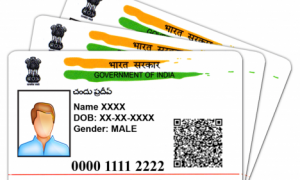Online banking puts all your banking and financial transactions at your fingertips. With technology, banking in India has become that much more user friendly. Whether you have to open a new account, pay EMI or transfer money from one account to another or maybe pay your bills, everything is possible within seconds. But comfort comes at a cost! Unfortunately, phishing attacks and online frauds are rising day by day. Fraudsters are finding new ways to scam people via email, spam calls, social media, malicious links, and a lot more. New dangers keep popping up and the latest on has forced ICICI Bank to warn its account holders of the latest Facebook, and WhatsApp money fraud.
Read More: Will tokenisation make your credit and debit card transactions safer?
Despite the constant efforts by banks to protect their clients, there has been a rise in bank frauds through the years. Therefore, ICICI Bank has alerted its customers about the potential frauds in a tweet, ?Be careful of fraudsters trying to convince you to share your UPI PIN over the phone. Stay safe, practice #SafeBanking.? ICICI also shared an email while cautioning its customers about a new type of fraud that’s growing more common.
Shocking details exposed
“We have received many real requests for funds in these tough times, so a request from a known acquaintance does not feel out of the norm,” ICICI said in an email. According to the Bank, several scammers are increasingly using WhatsApp or Facebook accounts of customers to send messages to their contacts requesting money. As the request comes from a known source, several contacts are actually transferring the required amount. “In such instances, be cautious and always confirm. If your WhatsApp or Facebook accounts are hacked in any way, please notify the authorities,” ICICI warned the customers. In another blog, ICICI also shared some tips to stay safe with mobile banking or internet banking. Check here.
Read More: Is July 9 a Bank Holiday? Banks to Remain Shut for 12 Out of 22 Remaining Days in July
Tips to stay safe and secure with mobile banking
- Do not follow any URL in a message that you are not sure about.
- If you have to share your mobile with anyone else, ensure to clear browsing history, cache, temporary files, and block your mobile banking application.
- Only download apps from official app stores such as Apple App Store, Google Play Store, and more.
- Never disclose personal information or online banking credentials via e-mail or text message as these can be used for identity theft.
- Log out from online mobile banking or application as soon as you have completed your transactions. Also make sure you close that window. Always verify app permissions and grant only those permissions which have relevant context for the app?s purpose.
- Avoid using unsecured, unknown Wi-Fi networks.
- In case you come across any kind of banking fraud, report to the bank immediately.





































